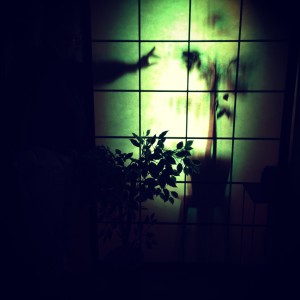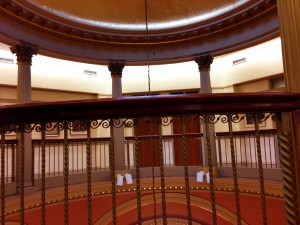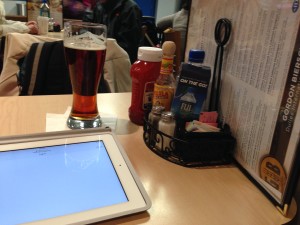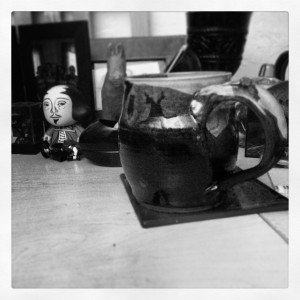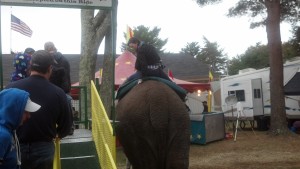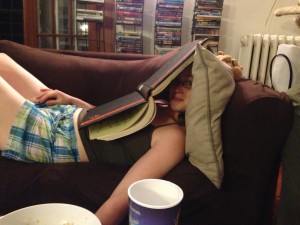So here’s the thing about archival work: while it is absolutely thrilling in concept, in practice it is more often dusty, sneezy, and tedious.
Let me paint a picture for you here. Mind you, this is a hypothetical situation based upon a compilation of real-life experience I have had. Take it as historical fiction.
You know that a certain performance, which you are extremely interested in, played at y London theatre on x day. Let’s say, for the sake of ease, that this performance is a performance of Hamlet in which Hamlet was played by a woman whose name you have found but not her picture (yet). The theatre is a medium-sized London house in the early twentieth century (before WWI). You know that the archive has a stack of broadsides for this theatre which spans the date range encompassing the performance.
First of all, getting into the archive is a process. Generally all you will be
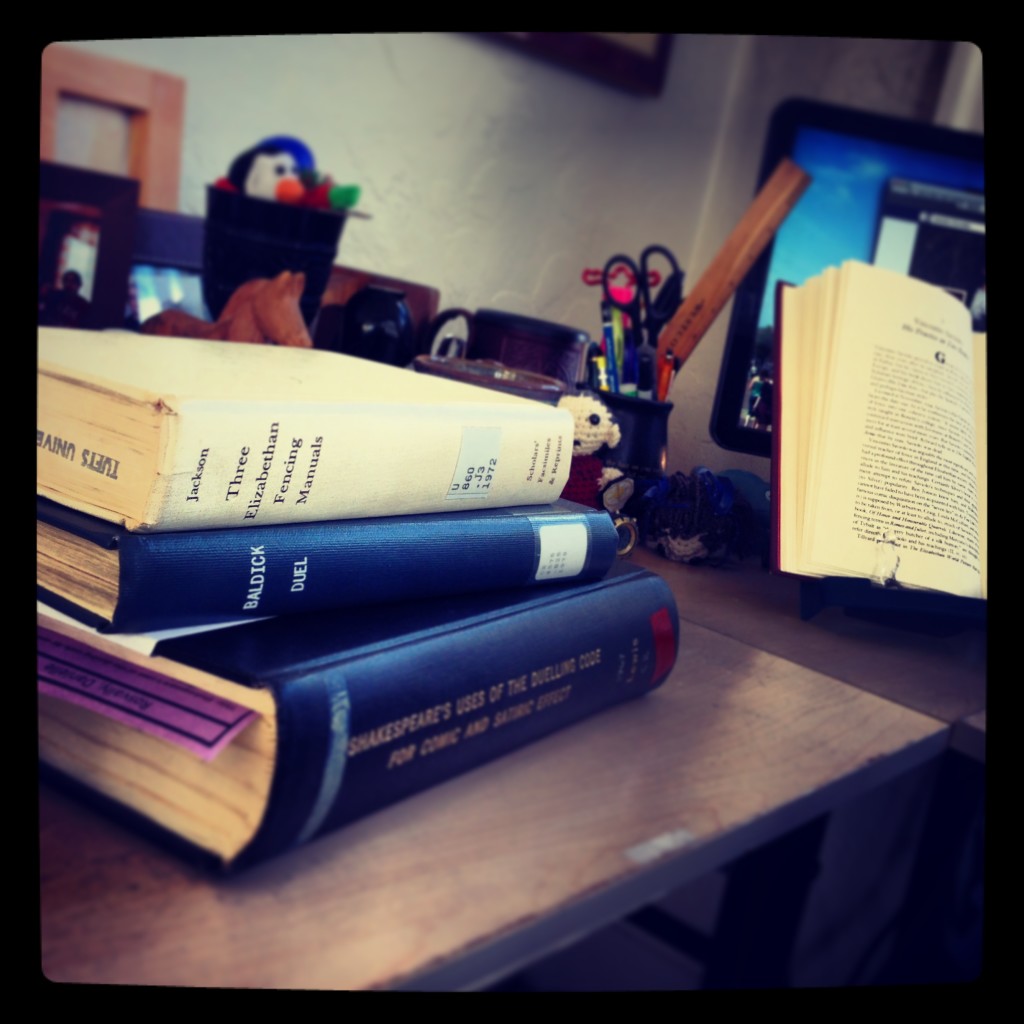
it’s been a while since I’ve posted an artful picture of my desk. Seem appropriate here.
permitted to enter with is a pencil, a laptop, a notebook, and a camera. They’ll have lockers outside where you will be expected to strip away and store any “unnecessary” materials. This includes your coffee and water bottle for obvious reasons, but in so doing also means that you have perhaps a 2-hour working window before you need to take a break, get a drink of water, or run to the powder room.
So you call up the broadsides and they come in a giant box that looks like it hasn’t been opened in twenty years. The broadsides are crumbling at the edges because they haven’t been stacked properly and, as a favor, the archivist asks if you could re-stack them as you go in order to better preserve them. The stack is approximately four inches high.
So you page through one at a time (because you can’t page any faster than that if you’re re-stacking, or even if you’re not re-stacking since they’re arranged in precise chronological order and you don’t want to disturb that… also they’re fragile and will crumble if they aren’t dealt with properly). While this is exhilarating at first (tee! You’re a real researcher!), it gets tedious very quickly. Inevitably what you’re looking for is at the middle of the stack. As you approach the target date, you can feel your blood begin to pump a little faster. Here it comes. That thing you were looking for!
You hit the target date. And there’s a broadside, but not the one you were expecting. Alternately, the broadside is missing. You squint, wondering if you missed something, and continue paging.
If you’re lucky, it’s only moved by a day or two. If you’re having a particularly bad archive day, it may be filed in the wrong year. The archivists are horrified by this oversight (and very polite about it and extremely helpful in assisting you to locate the missing broadside).
While you’re paging, you find something that’s tangentially related to your primary research topic. Alternately, it’s related to some other project that you’re working on. You find some way to make a note to yourself that you pray you’ll remember to look at later on because, really, where do you file random notes to yourself with any efficacy?
So you finally find the stack of broadsides advertising the run. Now you need to document them in detail as precise as possible. You set them up to take pictures with your camera (or, as I’ve recently started doing, your phone since its camera is actually better than the one that’s dedicated to being a camera). But make sure you take at least two or three because heaven forbid your pictures come out blurry.
Unless you decide to tether the camera to your computer (or, again as I’ve recently started doing, use dropbox to wirelessly transfer the pics so you can take notes on them as you go). You now need to figure out how to demark which of these extremely similar looking broadsides is noteworthy, why, and how this broadside is different from all other broadsides.
And you hope you’ve gotten it right because coming back to the archive is a difficult/impossible task (depending on its proximity to your home/office) so really you’ve just got this one shot to document it. In the immortal words of Ru Paul “Good luck; and don’t F#&% it up!”
So yes, archive work is thrilling. If I wrote here saying that I had less than an amazing time during archive days and that I was anything under exhilarated by the prospect of rare books and manuscripts, I would have to hang up my scholar cap right now and go join the circus. But that being said, it’s one of those tradeoff things. You suffer for your art; for that one moment of “ah hah!”; and the dinosaur bones are always buried under layers upon layers of dirt.


